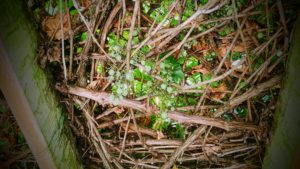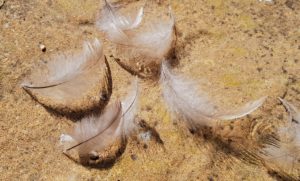There’s a sign, a little artisan placard, on a wall at my parent’s house. I’m not sure where it came from, or even when it appeared. It is ornate, but it has just three simple words on it: ‘seed’, ‘feed’, ‘weed’. I noted it, because it echoes the approaches I’ve been taught for developing products, growing businesses, and even life in general.
You start by creating possibilities and opportunities. Dream big dreams, push open doors, make bold asks. You feed and nurture those seeds with resources, time and energy. Then there comes a time to weed. A time to remove the things that didn’t quite work out, and the things that have grown up that should not be there. These are the plants that might grow and strangle the good seeds, holding back things which might otherwise be fruitful, by starving them of scarce resources.
The idea of there being seasons for things, times and phases for things, is not a novel one. Thousands of years ago the book of Ecclesiastes was written. Chapter 3 is probably its most famous passage: “A time to be born and a time to die, a time to plant and a time to uproot.” – its themes are echoed in many places.

As I look out of the window onto the garden, I can see the grapevines. Red and white. I haven’t done a great job with them this year, and they have produced very little fruit. The start of the season was full of other things demanding my time and attention, and I didn’t prune the vines well enough, or hard enough. The result is that, at the end of the season, the grapes are small and some of the leaves a slightly diseased. The vines are straggly and a matted, tangled mess, over growing the windows and sprawling over fence.
Grapevines need pruning in order to have the right growth to bear fruit. It is a two season process, and my inattention will cost me two years of fruit. Even after pruning the branches, some of the newly growing bunches of grapes have to be chopped off and discarded, even some promising looking ones, to ensure there are enough resources for those remaining bunches of grapes to develop fully and grow to become useful fruit. You can’t be greedy with grapevines. If you demand too much fruit, you end up with less than you would have had if you looked for less.
My failures in viticulture have benefited some visitors to the garden. The smaller birds have been busy perfecting aerobatic routines to get to the few grapes that there on the vine, grabbing the slim pickings from my losses. The longer term resident birds, our chickens, run to the vine each morning, hoping that their wild cousins have knocked some grapes to the ground as a tasty treat for them. The left overs are scarce. One of the more capable fliers in the flock has even managed to fly up and steal some grapes for herself. Boldness has its rewards.

However, even the chickens are subject to the seasons. The feathers that enable them to fly and give them their beautiful appearance, only last for a time. Chickens, somewhat like dogs and cats, moult. They shed all their feathers, and then fresh spines appear, which grow into new feathers for the next season. Sometimes the new feathers are different colours, giving the hen a changed appearance the next year. Usually they shed a few feathers at a time, making a gradual transition, but still looking a little scraggy and battle worn during the process. One of the largest hens, a rather grand and beautiful lady, has lost most of her feathers at once, and she has started to look like a half plucked turkey. Most inelegant. But her feathers will grow back, and she will be even grander than she was before.
The natural world is full of cycles, and our own lives are a part of that natural world. Lives have their seasons and phases. Sometimes we need to cut back in order to create new growth, sometimes we need to plant. Sometimes you have to go through an ugly, awkward patch to get our beautiful plumage. We breathe in, and we breathe out. It is the way of life, and always will be. However differently technology may make things appear, things take time.





